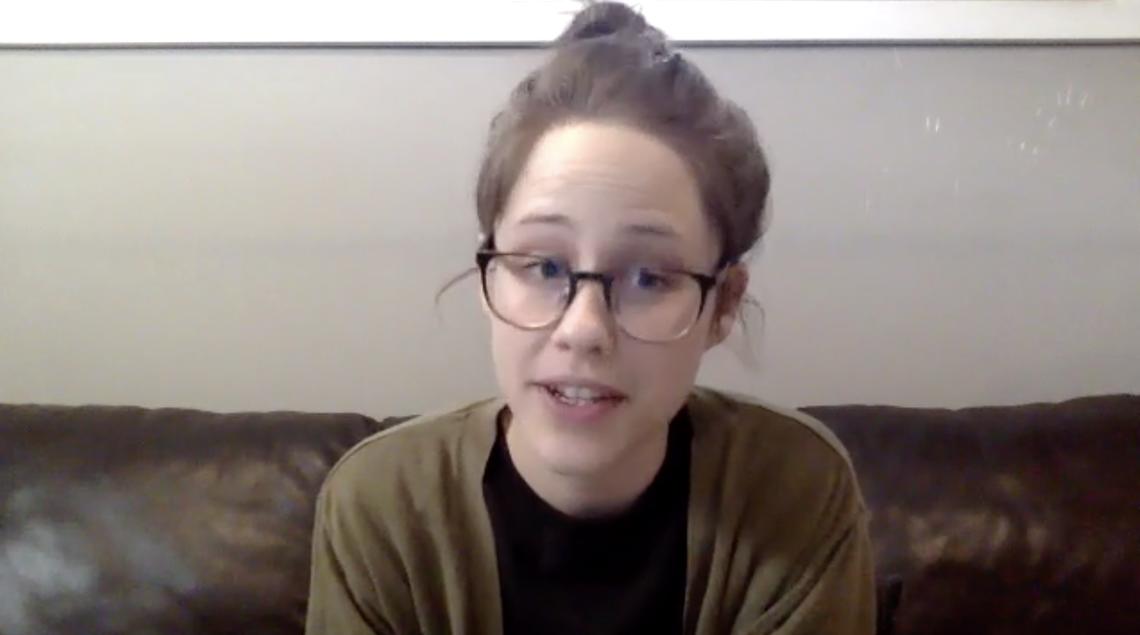Oct. 1, 2020
MSW teaches you to support community development here or around the world

Something I was able to do differently in my work was to take more of a community development approach when the huge influx of Syrian refugees started to come in a few years ago. Even though I was a relatively new MSW graduate at the time, I was able to work with senior leadership within children's services to develop some strategies to do some outreach work with the Syrian refugees that were coming in.
Saba Amaro, MSW ’14 (International and Community Development) Program Specialist, Alberta Children’s Services
Over the years our MSW in International and Community Development has trained social workers to work internationally with non-governmental organizations (NGOs), development agencies, governments and the United Nations.
However, we’ve also trained many social workers who have applied their skills in community development settings across Canada. Some of our grads work with agencies, government and other immigrant-serving organizations here in Canada.
For example, when Saba Amaro, MSW ’14 graduated, she initially thought of returning to do international development work in the middle east. While that remains a longer-term goal, she quickly found the community development skills she’d learned provided a valuable lens in her role as a program specialist with Alberta Children’s Services. Working with leadership she worked to develop strategies for outreach work to help with the sudden influx of Syrian refugees.
“It can be very, very scary and very intimidating for newcomers,” Amaro points out. “If you have involvement with children's services and you don't know anything about the system, that's really problematic and can lead to some awful outcomes for your community. So, I was able to do some really interesting work and connect with community leaders and do some outreach trying to build some bridges and help the community better understand a little bit of what children's services is all about.”
International practicums.
One of the unique features of the mostly online program is that, if they choose, students can do international practicum placements. For example, Amaro did her practicum working with the United Nations Institute for Training and Research (UNITaR) in Hiroshima, Japan. Amaro worked on a post-conflict development project for Afghanistan.
“It was really interesting,” she says. “Hiroshima of course suffered through the atomic bombing, so the city is very much a symbol of resilience and overcoming some of the most difficult and tragic events that a country can face. And so, to have that link, while supporting this project for civil servants in the Afghan government was very cool and very powerful.”

Recent grad Jennie Gurnett, MSW'19 says she'll most likely use her degree working in Canada,
“I always felt my international development degree was really relevant in the inner city,” she says. “I think starting with the community, and all those sorts of principles are really relevant, no matter where you're working. Looking at how the most vulnerable are affected is relevant whether you’re working here or in Uganda. To find a master's that integrated both of the things that I've loved and both of the degrees that I have, just felt like a really fortuitous, moment. I was thrilled to find the program.”
Jennie Gurnett MSW'19
“where the magic really happened”
The International and Community Development MSW is a two-year, flexible program that is offered mostly online. Being online, however, doesn’t mean that students are disconnected from each other. In fact, recent graduate, Jennie Gurnett MSW'19 was most surprised at the connections she made with her cohort and considers that to be one of the most important parts of her MSW journey.
“It was really all these brilliant women from different disciplines and different backgrounds,” she reflects. “For me, that was a huge part of why the program was excellent. These are women who have worked in various fields and various disciplines and they bring all of that expertise to the classroom. And that’s in addition to the professors who were bringing their own incredible experience. That to me was where the magic really happened in integrating the content and the readings that we were doing with all of that life experience. That was so amazing for me.”
Students with a non-social work degree can still apply to the program as "foundation students," which means they can pursue this specialization after a year of foundational social work study that prepares them for graduate social work study.
“This is the world calling.”
Dr. Aamir Jamal, PhD leads the International and Community Development (ICD) MSW program. Jamal says that students should think of the ICD degree as kind of a “Swiss Army Knife” degree, that students can apply to any number of contexts at home and abroad.
Jamal has extensive experience doing both. Here in Canada his research touches on involving men in gender equality work and working to end domestic violence. He’s also worked with Muslim communities across Canada looking at how Muslim youth forge new identities in this country and ways to better support them. He has also worked in many international settings as a champion for gender equality and educating girls in the mountainous Pashtun region of northern Pakistan.
He says that students really have the option to choose their own path, however they will have instruction from individuals with experience in the highest levels of international development and learn principles of sustainable development that can work anywhere.
“If you think of yourself as a global citizen and you’ve always dreamed of having an internationally focused career, then I think this is the program for you.”
If you're interested in applying to the program, applications close on Nov. 2
>> Find out more about the MSW in International and Community Development
